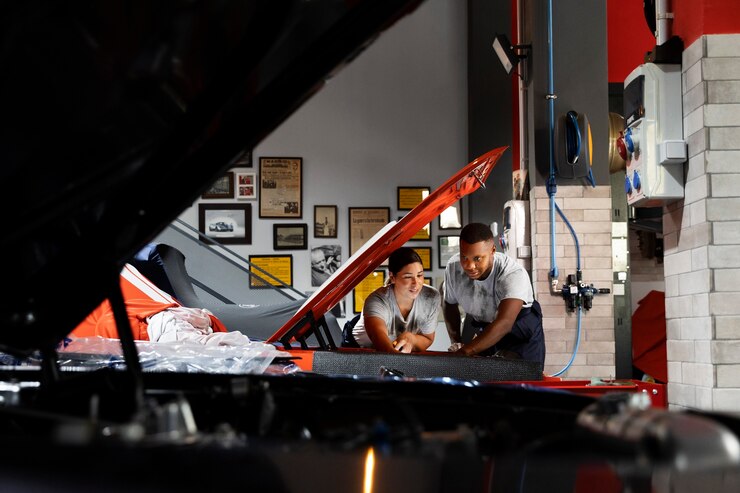Electrical problems in cars are among the most common issues faced by vehicle owners today. Modern vehicles are increasingly dependent on sophisticated electrical systems, from basic lighting and starting circuits to advanced infotainment systems and safety features. This reliance makes any failure in the electrical components not just inconvenient but potentially dangerous. Understanding the root causes of these issues and how to prevent them can save drivers time, money, and frustration. In this article, we will explore the key causes of electrical problems in cars and how to prevent them, focusing on electrical repair automotive solutions.
Common Causes of Electrical Problems in Cars
Dead or Weak Battery
One of the most common causes of electrical problems in cars is a dead or weak battery. The battery provides the electrical power necessary to start the engine and power many of the vehicle's electrical components when the engine is off. Over time, batteries lose their ability to hold a charge, especially if they are not maintained properly. Extreme temperatures (both hot and cold) can also affect a battery's performance, reducing its efficiency and causing premature failure.
Faulty Alternator
The alternator is responsible for charging the battery and providing power to the vehicle’s electrical system while the engine is running. If the alternator is failing, it can lead to a range of electrical problems, including dimming lights, malfunctioning electronics, and even complete vehicle shutdown. A failing alternator can overcharge or undercharge the battery, leading to battery drain or other issues.
Blown Fuses
Fuses protect your vehicle’s electrical system from damage caused by overloading. If a component draws too much current, the fuse blows to prevent further harm. However, when fuses blow, it means an electrical component or circuit has an issue, and the system requires inspection. If fuses continue to blow repeatedly, this indicates a deeper electrical problem, such as a short circuit.
Loose or Corroded Wiring Connections
Wiring in your vehicle is what connects the electrical components to their power sources. Over time, wiring can become loose or corroded, leading to poor connections and erratic electrical behavior. Loose wiring can cause intermittent power issues, while corrosion can prevent electricity from flowing altogether. Damaged or frayed wires can also lead to electrical shorts or even fires.
Malfunctioning Starter Motor
The starter motor is responsible for turning the engine over when you turn the key in the ignition. If the starter motor is malfunctioning, your vehicle may not start at all or may start intermittently. Symptoms of a failing starter include a clicking noise when turning the key, slow engine cranking, or no response from the engine at all.
Short Circuits and Parasitic Drain
A short circuit occurs when an electrical component draws current directly from the power source without going through the correct circuit, causing excessive current flow. This can lead to blown fuses, melted wires, or even fires. A parasitic drain occurs when an electrical component continues to draw power even when the vehicle is off, draining the battery over time. Parasitic drains are often caused by faulty switches, aftermarket installations, or malfunctioning electronics.
Problems with Sensors and Control Modules
Modern vehicles are equipped with numerous sensors and control modules that monitor everything from the engine’s performance to the air conditioning system. If any of these sensors or control modules fail, it can lead to a variety of electrical issues, including check engine lights, malfunctioning systems, or erratic behavior. A malfunctioning sensor can also send incorrect information to the vehicle’s computer, causing performance problems.
How to Prevent Electrical Problems in Your Car
Regular Maintenance
Preventing electrical problems in your vehicle starts with regular maintenance. Checking the battery, alternator, starter motor, and wiring system during routine maintenance can help catch potential issues before they become major problems. Regular maintenance not only keeps your vehicle running smoothly but also extends the lifespan of its electrical components.
Avoid Aftermarket Modifications
While it’s tempting to add aftermarket electronics like custom lights or sound systems, these can put a strain on your car’s electrical system, especially if they are not installed correctly. Poor wiring or overloading circuits can lead to electrical problems such as short circuits or parasitic drains.
Protect Your Car from the Elements
Moisture and extreme weather conditions can wreak havoc on your vehicle’s electrical system. Water can cause short circuits, while extreme heat or cold can reduce the performance of the battery and other electrical components.
Promptly Address Warning Lights
Modern cars are equipped with various warning lights that indicate issues within the vehicle’s systems, including electrical problems. If you see any warning lights related to the electrical system, such as the battery or check engine light, don’t ignore them.
Conclusion
Electrical problems in cars can be frustrating and costly if not addressed promptly. The most common causes include weak batteries, faulty alternators, blown fuses, loose wiring, malfunctioning starters, short circuits, and issues with sensors and control modules. Regular maintenance and timely electrical repair automotive checks can prevent these problems and ensure that your vehicle runs smoothly. By staying proactive and addressing electrical issues early, you can avoid inconvenient breakdowns and expensive repairs, keeping your vehicle’s electrical system in top condition for years to come.





Comments